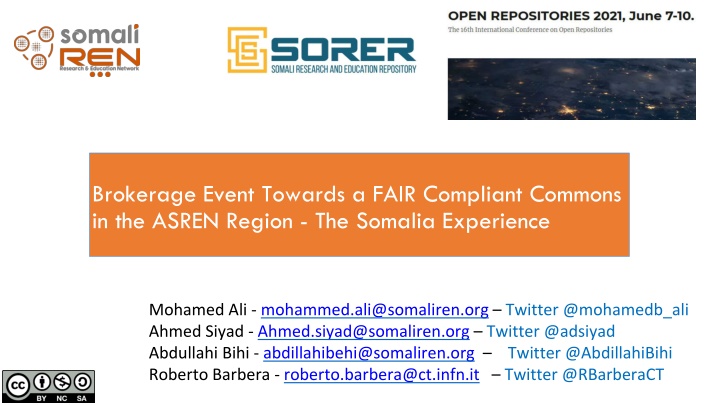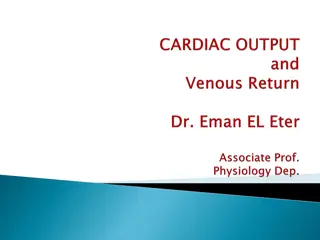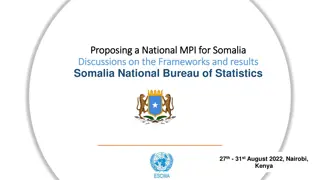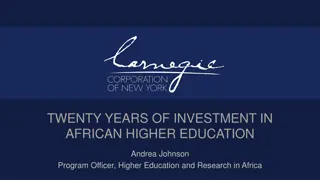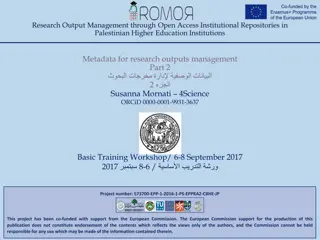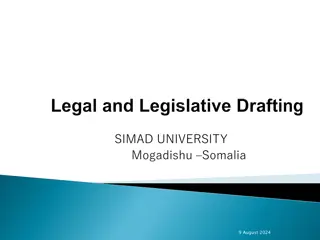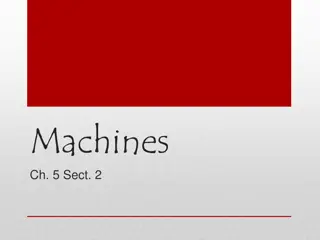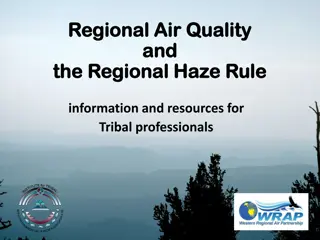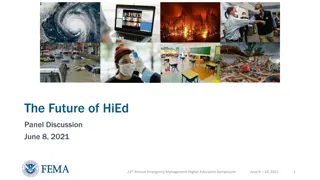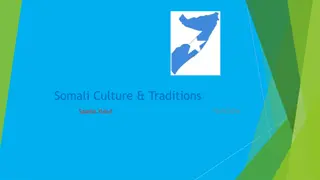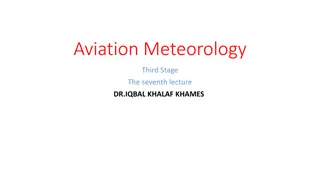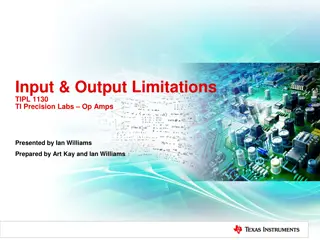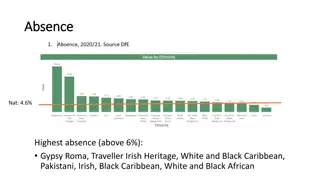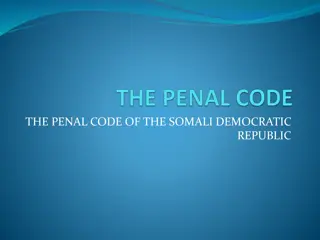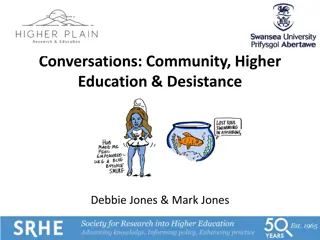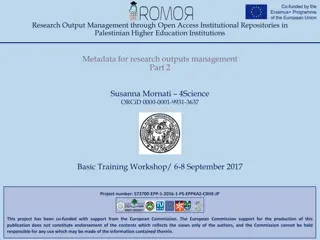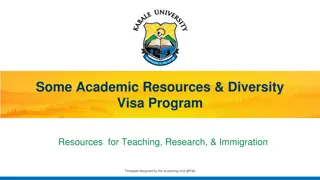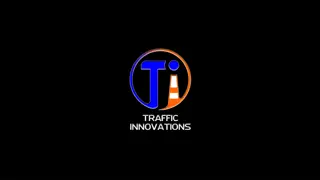Enhancing Research Output and Visibility in Somali Higher Education
SomaliREN's Digital Repository Services Initiative aims to address the challenges of limited research output visibility and academic integrity through partnerships with key players in the open access and repository sphere. Motivated by the need to improve research quality and combat plagiarism, the initiative leverages local expertise and infrastructure to meet the growing demand for digital repositories.
Download Presentation

Please find below an Image/Link to download the presentation.
The content on the website is provided AS IS for your information and personal use only. It may not be sold, licensed, or shared on other websites without obtaining consent from the author.If you encounter any issues during the download, it is possible that the publisher has removed the file from their server.
You are allowed to download the files provided on this website for personal or commercial use, subject to the condition that they are used lawfully. All files are the property of their respective owners.
The content on the website is provided AS IS for your information and personal use only. It may not be sold, licensed, or shared on other websites without obtaining consent from the author.
E N D
Presentation Transcript
Brokerage Event Towards a FAIR Compliant Commons in the ASREN Region - The Somalia Experience Mohamed Ali - mohammed.ali@somaliren.org Twitter @mohamedb_ali Ahmed Siyad - Ahmed.siyad@somaliren.org Twitter @adsiyad Abdullahi Bihi - abdillahibehi@somaliren.org Twitter @AbdillahiBihi Roberto Barbera - roberto.barbera@ct.infn.it Twitter @RBarberaCT
Outline Some background The Motivation Opportunities and Enablers Implementation Issues The status The architecture Lessons Learned What is Next for SORER?
Some Background The Somali higher education sector has in the past 6 years recognized research as a mission critical pillar for international and national accreditation and started a trend of research production and management commitment SomaliREN s Digital Repository Services Initiative started as a response to this research focus of the member institutions Previous efforts to deploy DSpace as the platform for the repositories did not turn out as expected A key challenge was the dependence on external resources to implement the system and provide support Also, an easier to manage and maintain software platform for repository management was needed
Motivations Lack of localized open access research output The limited research outputs produced by local institutions were not adequately showcased to interested constituencies and global citizens outside academic institutions Limited research output visibility This has negatively branded the universities as in-competent to produce any form of research content Quality of the research output needed to be improved No measures against localized plagiarism that can severely impact academic integrity
Opportunities and Enablers Partnerships with key players in the Open Access and FAIR principles compliant repository sphere, especially INFN and the University of Catania Knowledge transfer, technical assistance and support with cloud infrastructure was available at UbuntuNet Alliance although we used our own infrastructure for the current deployment Available local expertise that could absorb and build on top of the skills and knowledge transfer A growing demand of digital repositories within our community
Implementation Issues Limited infrastructure resources to deploy the platform Limited technical resources New skills needed for the underlying technology No identity federation in Somalia No National Open Access Policy of Somalia for Higher Education Need for end-user community adoption of the repository which is a key limiting factor to the exponential growth of the repository content
SORER Status SORER is live now at https://sorer.somaliren.org.so/ Conducted Two Introductory workshops so far: Workshop for Rectors, VCs and Heads of Member Institutions SORER Technical Workshop for University ICT directors and librarians 8 different Communities have been created so far on it by the members 18 researchers have already registered to SORER 15 different publications and presentations have already been published Open to non-SomaliREN users(thanks to the concept of Communities ) Every research output published on SORER will get a DOI for easy identification (Thanks to UbuntuNet Alliance) SORER technical guide has been prepared and published on the repository
SORER System Architecture SORER has been configured and deployed using the Synthetic procedure to replicate the INFN Open Access Repository, which was originally written for the deployment of NADRE in Ethiopia SORER: Adopts leading-edge technologies in the domain of digital repositories such as and Relies on containers and containers orchestrators for maximum reliability and scalability Exploits the concept of communities , which is central in the Zenodo architecture, to cope with several aggregations of contents: per University, per Department/Faculty, per project, etc. Supports DOI minting and versioning Is compliant with FAIR principles Is compliant with Plan S requirements
Lessons Learned Technical feasibility of any project should be ensured during the planning stage Openness in research and open access is critical for quality research output Openness is also key to tackling the plagiarism pandemic Centralization of the repository for communities with shared interest and outlook can simplify the implementation, operation and support of the repository.
What is Next for SORER? Development of strategies to make SORER part of the graduation thesis and conference organization workflows. Develop strategies and policies for enhancing the quantity and quality of publications and content in the SORER database SomaliREN to work with the relevant parties to prepare the National Open Access Policy of Somalia for Higher Education Promote Open Access/Open data in Somalia and across the continent to make science more efficient, reliable, and responsive to societal challenges Finalize the preparation of extensive resources based on the development of SORER in partnership with INFN and the University of Catania; and support other NRENs in the deployment and operationalization of repositories based on INVENIO and Zenodo
And last but not least If you can't pay it back, pay it forward. Catherine Ryan Hyde. Together with our friends at INFN and the University of Catania, we are ready to support other NRENs in the deployment of similar solutions that are compliant with the Open Access and Open Science principles.
THE END Mahadsanidiin Thank you Grazie
